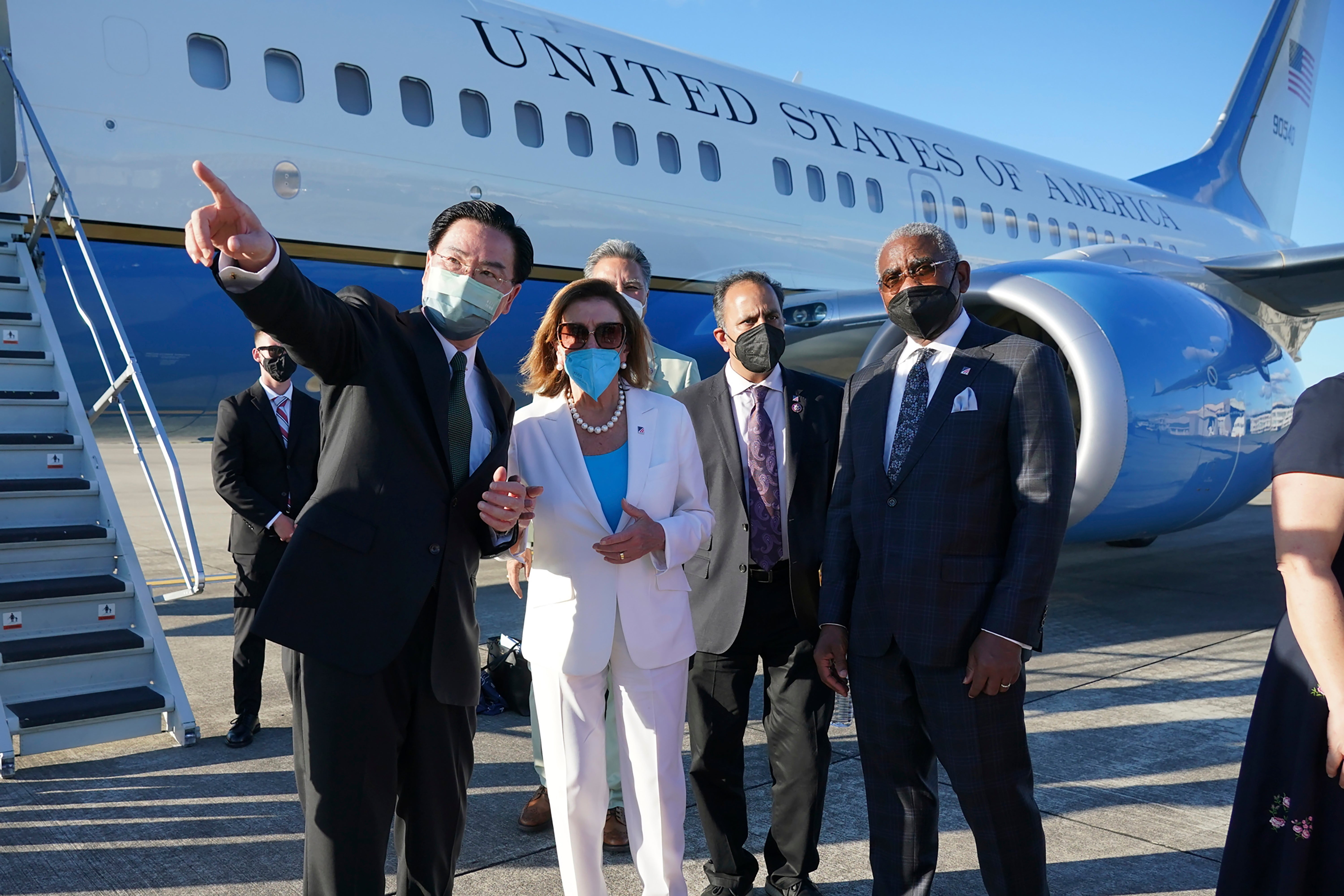Here in Taiwan, this is what people really think of Nancy Pelosi’s visit
China has threatened four days of military exercises in the coastal regions near the island as retaliation


Nancy Pelosi’s whirlwind visit to Taiwan ended in less than 24 hours, but during that time, the small democratic island suddenly became the most talked-about topic in the world. Prior to Pelosi’s arrival, there were concerns in the United States that the visit may further escalate tension between Beijing and Washington. In seeming confirmation, the Chinese government was quick to issue a series of stern warnings. Chinese Foreign Minister Wang Yi said that the US “making themselves an enemy of the 1.4 billion Chinese people will not end up well”.
But here in Taipei, life remained relatively calm and business-as-usual. While international discussion largely focused on the risks of an escalated military conflict between two of the world’s biggest countries, news in Taiwan focuses largely on gossip or news about local politics. For that reason, some may think Taiwanese people are indifferent to the potential risks of Pelosi’s visit – especially given the strident tone of the comments from Beijing — but the truth is that Taiwanese people have simply grown used to this kind of rhetoric. In Taiwan, measured military threats from China occur on almost a daily basis.
Nevertheless, Pelosi’s arrival still triggered a lot of public support — for both her and the United States. Many Taiwanese people I spoke to expressed gratitude towards the Speaker’s decision to go ahead with her trip, especially given rumors that she was discouraged from coming. Some said that while they know Beijing will likely retaliate against her visit, Pelosi’s trip offers Taiwan an unprecedented level of international visibility and allows the world to have a better understanding of the dilemmas facing the island. Others said Pelosi’s arrival brings a certain level of reassurance, seeming to send the message that the US is determined to maintain its support for Taiwan in the face of an ever more aggressive China.
Taiwan is already experiencing retaliation from China for this visit. A long list of Taiwanese goods were banned from being imported into China while Pelosi was on the ground. Beijing then announced a four-day live-fire drill from the coast that encircles Taiwan, starting Thursday. Just a few hours ago, Taiwan’s defense ministry announced that more than 20 Chinese military aircraft have flown into Taiwan’s Air Defense Identification Zone, with 22 of those crossing the median line of the Taiwan Strait.
These tactics may look familiar, but the scale of China’s retaliation still caused some concerns among local residents. Even though it seems unlikely that China is seeking direct military conflict against Taiwan any time soon, the proximity of these military exercises to the island sends a clear message: China does not want Taiwan to interact any further with other countries — especially the United States.
China has long viewed Taiwan as its sovereign territory and since Xi Jinping came to power, rhetoric about reunifying with Taiwan — even by force, if necessary — has become more commonplace. And with the war in Ukraine entering its sixth month, some Taiwanese people have begun to change their minds about how much of a threat China actually poses. While most grew accustomed, even desensitized, to constant threats from the larger country over the past few years, many are now talking about the necessity of being able to mobilize a defense against an invading force.
A number of commentators have wondered out loud if being caught in the middle of two great, warring powers is an unavoidable fate for the Taiwanese people. Amid macro-discussions about a potential conflict between Beijing and Washington, people here say that they are keen to have the “Taiwanese perspective” heard around the world, too.
As Pelosi moves on to the next leg of her Asia tour in South Korea, people in Taiwan are cautiously waiting for Beijing’s promised four-day military exercise. Dozens of flights have been canceled in preparation, and government agencies have begun to talk about emergency contingency plans. However, the attention Taiwan is now receiving from across the world is encouraging. Despite the clear ramifications of Pelosi’s trip, most agree that it will be better if more, not fewer, foreign countries engaged with Taiwan in the near future.


Join our commenting forum
Join thought-provoking conversations, follow other Independent readers and see their replies
Comments